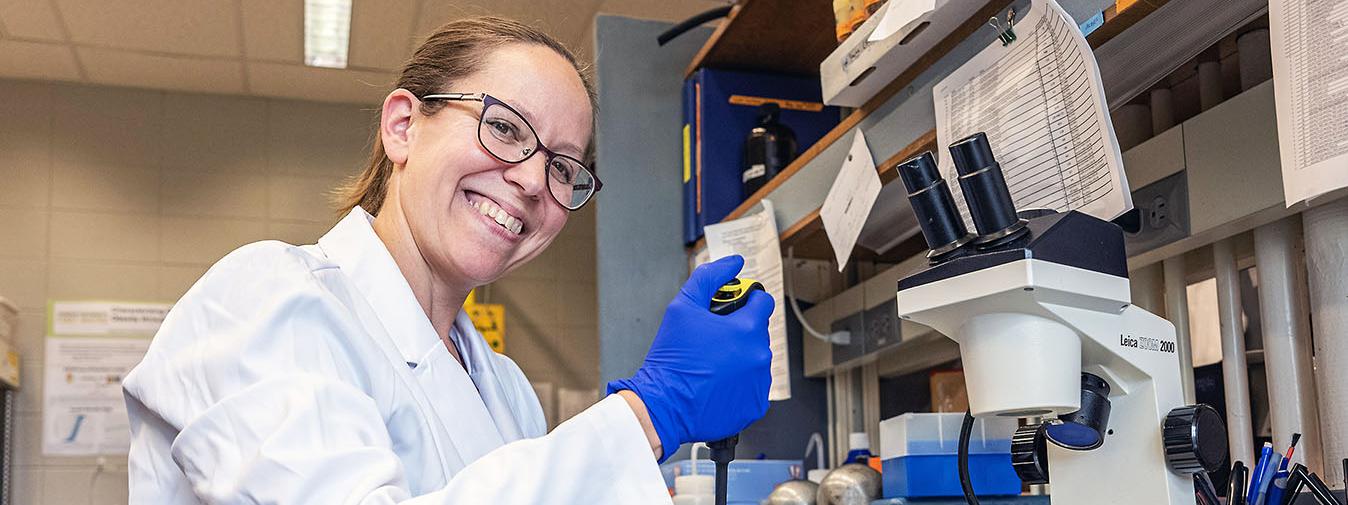
New fall semester course teaches students how to write research papers
By Blake Sebring
August 15, 2024
While the majority of Purdue University Fort Wayne academic departments encourage undergraduate students to conduct research projects, it’s in the College of Science’s DNA. Students earning degrees in CoS majors often expect to utilize what they’ve learned at the next level, which would include a significant amount of time writing research papers.
Becky Palu, an assistant professor who specializes in genetics and molecular biology, is offering a fall semester class focusing on course-based research and teaching students how to effectively conduct the work and write papers. The course will primarily be offered to seniors and graduate students who likely have basic experience working in a lab.
The course can give PFW undergraduate students a bit of a head start, because unless they are assisting faculty, most are not exposed to research writing until reaching graduate school.
“If they are waiting to learn to do this with their research project, then the stakes are high,” Palu said. “If we incorporate it as part of the curriculum, which is what I’m doing with this particular class, they get a chance to get correction, work with a team to put this paper together, and then they also see how it works and see how a final product works. When they go to write papers for their research, they suddenly have an idea where to start.”
And, as Palu stressed, scientific writing is a unique style compared to others. The language is more precise, less descriptive, and requires constant citations.
“If they haven’t done it before, they probably won’t be able to do it right away,” Palu said.
Like most students, Palu said she learned by sending drafts to mentors, making suggested corrections, and rewriting—a process that might involve multiple rounds of review. Even today, five years into her PFW tenure, Palu said her first drafts usually return with red notations and suggestions. She doesn’t expect anything different from her students.
Along with lab work, the class will take students through the checkpoints of writing a research paper with plenty of feedback from Palu. Eventually, the students will combine to hopefully complete a finished, ready-for-submission paper for potential publication by the end of the semester.
That can be beneficial to students entering graduate studies or the professional fields, Palu said, because they can prove they have experience conducting solid research and being part of a published paper. They are no longer rookies.
“You don’t know if you like research until you try it, so it’s a dangerous thing to think you are going into a research-based grad program without giving it a try,” Palu said. “It can get overwhelming really fast! You really should try it first.”
Dozens of professors across campus offer positions for students in research labs, but Palu said there are not enough openings for every student who may be interested. Others may not be able to put aside the additional time it takes to work or volunteer because of other commitments. This class provides a different option.
Students will be graded on incorporating feedback, content, style, and accuracy, along with producing content understandable to a broader audience. They will also work with classmates to learn how they formulated their work, which may provide future tips.
Palu hopes this will become a regular fall semester class.
“We’re all trying to find ways to incorporate this kind of high-impact practices into our teaching and really engage our students,” Palu said. “As soon as I started to explain why I wanted to teach this class and how it would work, most of the feedback was a lot of support and even suggestions to incorporate the writing aspect and not get bogged down in the revisions.”




